Stefano Ritteri Interview – Dance Commander
With two decades of music making, some of the biggest labels in underground dance music in his rear-view mirror and a new label on the horizon, Declan McGlynn speaks with the London-based Italian producer Stefano Ritteri to talk individuality, the next generation and why Behringer might change the world… As we wander up the stairs […]
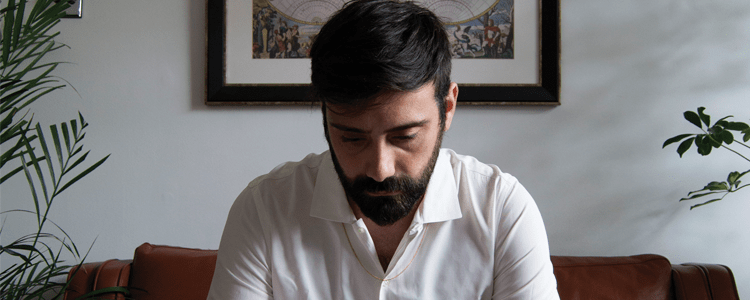
With two decades of music making, some of the biggest labels in underground dance music in his rear-view mirror and a new label on the horizon, Declan McGlynn speaks with the London-based Italian producer Stefano Ritteri to talk individuality, the next generation and why Behringer might change the world…

As we wander up the stairs to Stefano Ritteri’s East London home where his studio is based, we interrupt a planning session. The artwork and logos for his new label Viaggio are being analysed; Stefano sits back, head tilted, adjudicating on the latest in a long string of revisions. “When you invest in vinyl, you’re spending a lot of money even before the record comes out,” he explains. “On the artwork, on the mastering, pressing the records – anyone jumping into the world of vinyl, they have to be a lot more committed.”
Ritteri has gone through his fair share of changes. Originally releasing records on labels like Dirtybird, Lapsus and Kling Klong as Solo, he dropped the moniker in 2013 in favour of his own name. Since, he’s meandered through sounds and styles; decorating his discography with releases on Catz ‘n Dogz’ PETS Recordings, Defected and, more recently, A Different Happiness, his EP on Freerange Records. It was a release that signified another shift in sonics for Stefano, toward a more “wonky” approach. “It was kind of me testing the waters to see what people might think. In your head, you can be somewhere musically, but you have to see if people get it.”
The Behringer revolution
“I think what Behringer are doing now with their new products is going to change music production forever. Over the past few years, I bought some pedals and I even had a converter from Behringer that sounded very similar to my RME. I bought the DeepMind not knowing what to expect and it was really interesting. I remember when Uli Behringer himself announced they were going to start making synths, there were thousands of knee-jerk hate comments, and now on that same forum, he’s still posting asking what people want.
�“I like that he’s still getting himself really involved, considering he’s a multi-millionaire. He takes his time to get feedback from the users and the two new products that are coming out are based entirely on user feedback. He’s got the resources and the team to make synths people actually want. They’ve proven they can really do good synths with the DeepMind, and now the Neuron is coming out which is semi-modular and it’s £250.
“It’s exciting, because kids will be able to afford them and try them and play, and have something to touch and not just play in front of a screen. I like the idea of kids getting their hands on these weird semi-modulars that have no presets – maybe music will start sounding a bit more personal again, as opposed to everyone using the same presets from things like Serum and everyone sounding the same. Welcome to synths with no presets, welcome to cheap drum machines that sound weird – maybe people will stop using the fucking 909 hats every single time.”
Vinyl differentiation
As we move into the studio, a graphic designer is hunched over a laptop while Stefano explains his new label’s vinyl-only ethos.
“We’ll try and stay away from the major digital distributors. There’s nothing wrong with them, but there’s some politics and it’s a game that I’ve played for many years and I’m not bothered anymore. The production line for releasing vinyl, from the pressing, to distribution, to the person who decides what goes in the shop, it’s a lot more considered at every stage.
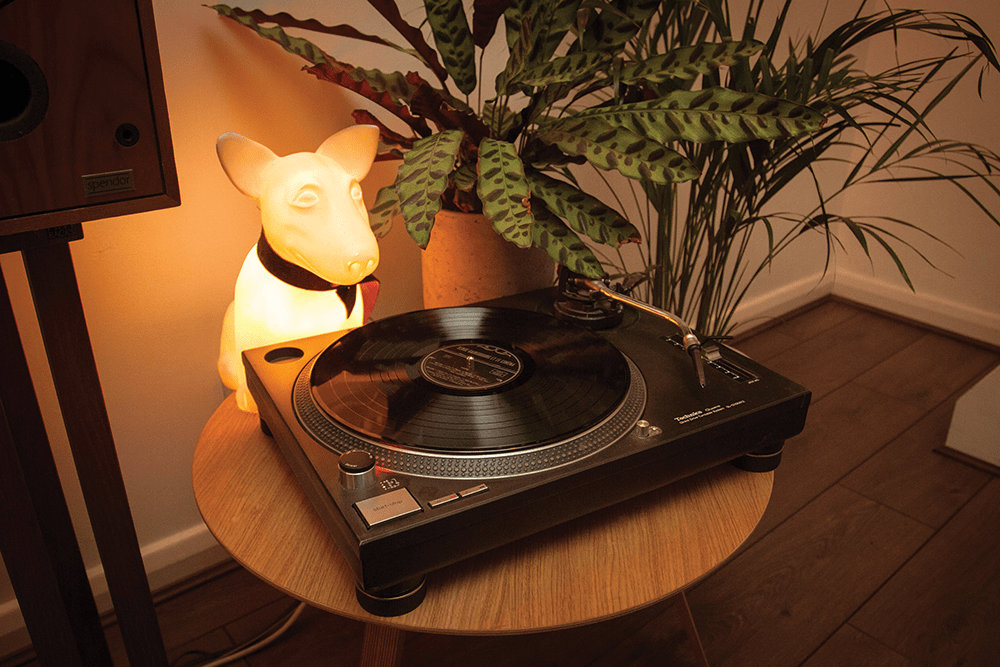
“Phonica, Rush Hour, these types of record stores, they only have a certain amount of physical space, so they have to be very careful about what they stock. Only the best music gets put in there. I like the idea that my new label will be found in this way, in the same way that I’m finding new music now in shops, rather than being uploaded onto on online store and lost with the other 28,000 tracks per week.”
Having recently joined the teaching ranks at Point Blank Music School, regularly working as a sound designer and mix engineer for one of the UK’s biggest advertising agencies and lecturing at universities across the country, Stefano’s varied schedule has given him the freedom to take more risks in his music. These have resulted in a shift in his production.
“I’ve got a little bored of what you might called house or techno, certain types of drum beats or certain types of Detroit stabs that we’ve all heard so many times. Last year I took a little break and rebuilt my studio, sold a lot of gear, spent a whole year experimenting with my music-making, which lead to the release on Freerange. The response to the EP was truly inspiring for me – people that I’ve always respected played it, the feedback from other DJs was amazing and people who have always been on my map started getting in touch.
“I thought: ‘Wow, this is my most “I don’t care” record and yet here I am, talking to people I’ve always wanted to talk to’, so off the back of that, I’ve been much more careful with what I release. Before, I might have released 50-to-60% of the music I made, but now I’m releasing maybe 10%. It’s a bit frustrating for my manager and agency, because in this game, the more presence you have, the better. But I don’t care – these records are much more meaningful to me.”
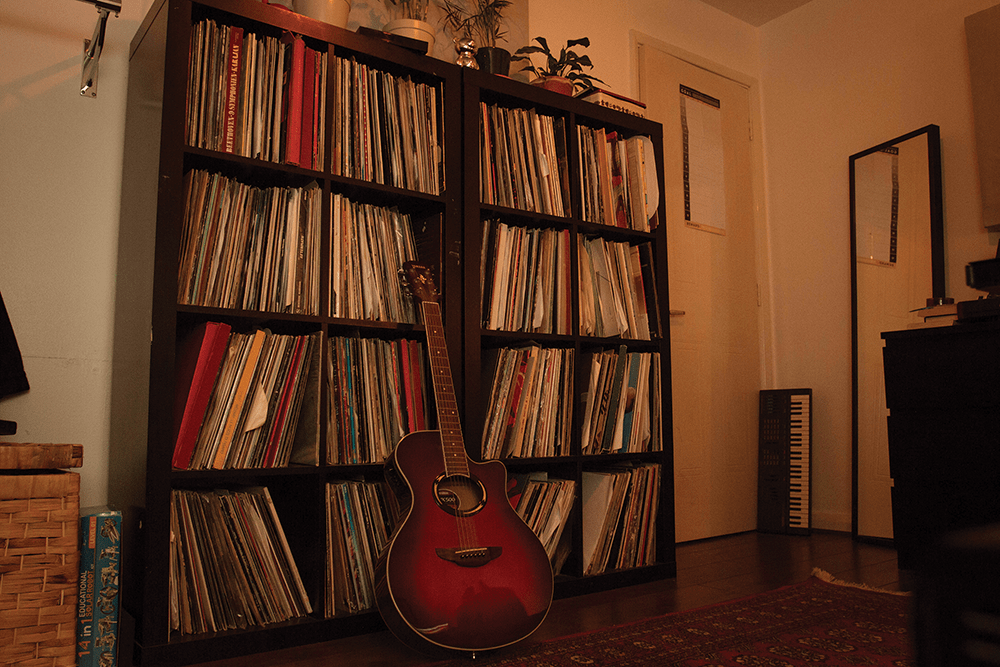
Of course, it’s easier said than done to stick to your guns and ‘stop caring’ when producing. Pressures to constantly release music, keep your name out there and to keep bookings coming in mean that often, producers are forced to stick to a certain style or bpm. For Stefano, it was broadening his creative horizons that eventually gave him the independence to follow his own path.
“We need to remember that to stop caring, you have to be financially able to do that. Not caring for me meant that I was gonna get less gigs and that came together for me when I got more work as a sound designer in the advertising industry and also as a lecturer. Suddenly, my finances were safe while still doing stuff with music, which meant I didn’t have to worry any more. Before, I always thought the world of advertising as a ‘real job’ and I didn’t want to have a real job. Now I love the fact that my weeks are constantly different. Two weeks ago, I was mixing a huge TV song that millions of people are going to hear, and the week after I was experimenting with synthesisers and making wonky music – tomorrow, I’m lecturing at a university.
“I love to know that next month I’ll be working on different projects for advertising and even though it’s stressful and it’s a different environment, it’s still me sitting with my synths and my computer and sometimes I get to be in a session recording big orchestras. Before, I saw that as a distraction. But now, it’s not only an inspiration, it’s a financial safety net that allows me to say: ‘I don’t care if this month I only play three gigs as opposed to eight’.
“When you stop caring about what sound is currently ‘cool’ or what other people are doing – and you’re not completely financially covered, or you don’t have a very rich girlfriend or boyfriend – then you’re always thinking: ‘How can I pay the next bill?’ And that is not a good jumping-off point for inspiration.”
Ableton Live 10
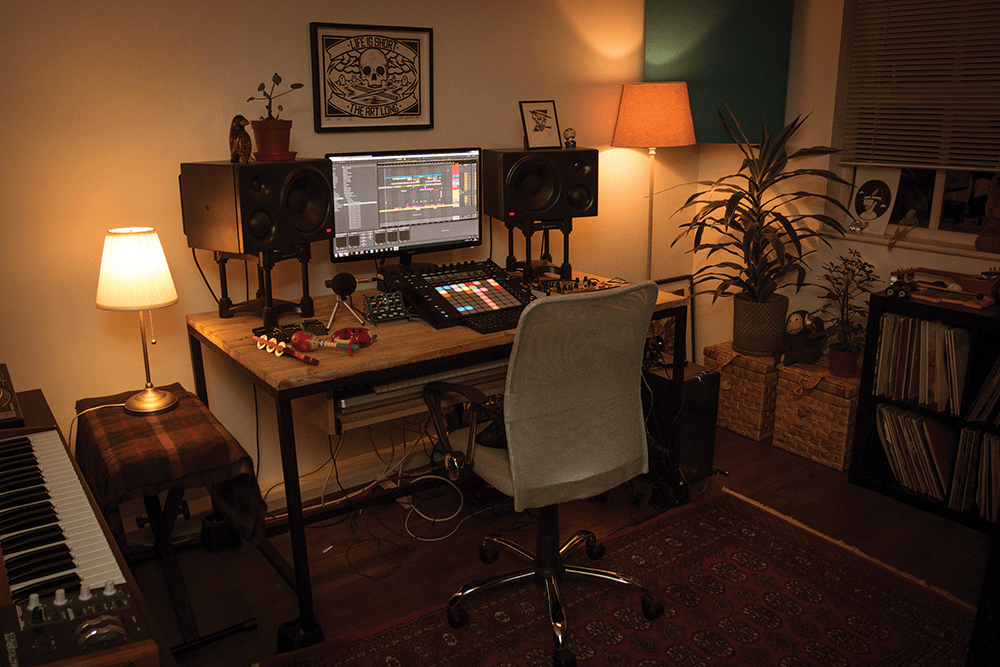
“Most of my production is now done in Ableton, because now me and Push are best friends. I’m working mostly in audio – I have a very cheap Zoom microphone that’s just constantly connected to my computer and if I need a clap or a snap I’m just recording things straight in. I’m basically using Ableton like I was using my MPC and I’ve rediscovered the beauty of Simpler and Sampler. I don’t use any of the other Ableton Devices. The ability to very quickly record something in through the Organelle, load it into Sampler and filter it… you can make things sound very different very quickly.
“I still use Cubase for some things and I find it easier to mix, but Ableton 10 is great with the new automation and zooming. Finally, it looks really good. I use a lot of randomisation and artificial intelligence – I just click record and mess around, that’s where the ideas come from. I don’t want perfection anymore and for that, Ableton is perfect.”
Clean break
This evolution in attitude comes with an evolution in studio setup. Stefano’s gear list has been swelling and contracting his whole career and is currently modestly minimal, and all the better for it.
“I’m back to sampling a lot and I deleted every sample library I’ve bought in the past 10 or 15 years, I don’t want to use any. There’s nothing wrong with them, of course, I just felt like I’ve been DJing very different music, and listening to different artists.
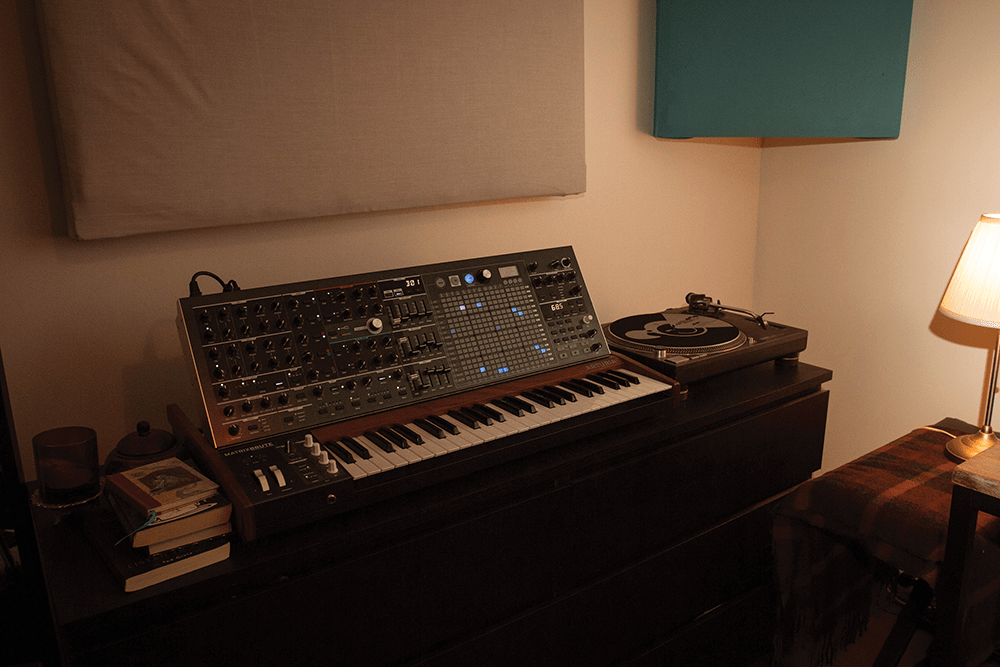
“A few years ago, I bought a lot of synths and a million guitar pedals – at one point I had the [Arturia] MatrixBrute, the [Moog] Sub 37, [Korg] Minilogue, Volcas, the [MFB] Tanzbär, [Elektron] Digitakt, four or five delay pedals, Behringer DeepMind… I can’t even remember. But I was only really using one or two synths in my songs, so I sold a lot of them and I was wondering: ‘What actually gives me a sound I can’t create in the box?’.”
It was an esoteric DSP device from Critter & Guitari called the Orangelle – a DSP unit that runs ‘patches’ created in the programming language Pure Data – that caught his attention.
“The first afternoon with it, I realised ‘this is something that will make me work differently’. In fact, all the tracks I’m making now are made using it, either with a sound coming from the Organelle or going through it as an FX unit. It can be anything – a synth, a drum machine, a guitar pedal.
“There’s a huge community of users, like Reaktor, who create patches and you can download them for free. There’s a guy on there that makes clones of all the Make Noise and Intellijel Eurorack modules. Suddenly, I have this little box that can be anything and I can sing into it and it becomes a synth or a vocoder. I can program crazy polyrhythm beats, or chop samples in a way that Ableton can’t do.
“Stocking up on gear turned out to be counter-productive, so now Stefano’s studio is based around the age-old concept of ‘less is more’. “Everything I’m buying now has to fulfil a role. I bought two of the new Moog Drummer From Another Mother, but that to me has a very special sequencer that’s not like anything else. Then I threw in a [Moog] Mother-32, too. The only synth I will never sell is the [Arturia] MatrixBrute. It does everything. It sounds more like a ‘Moog’ than a Sub 37. When you use the Arturia Steiner-Parker Filter, it goes places I’ve never heard. Now I’m looking for quirky boxes and weird pedals, even though Live 10 has a lot of new Effect Racks.”
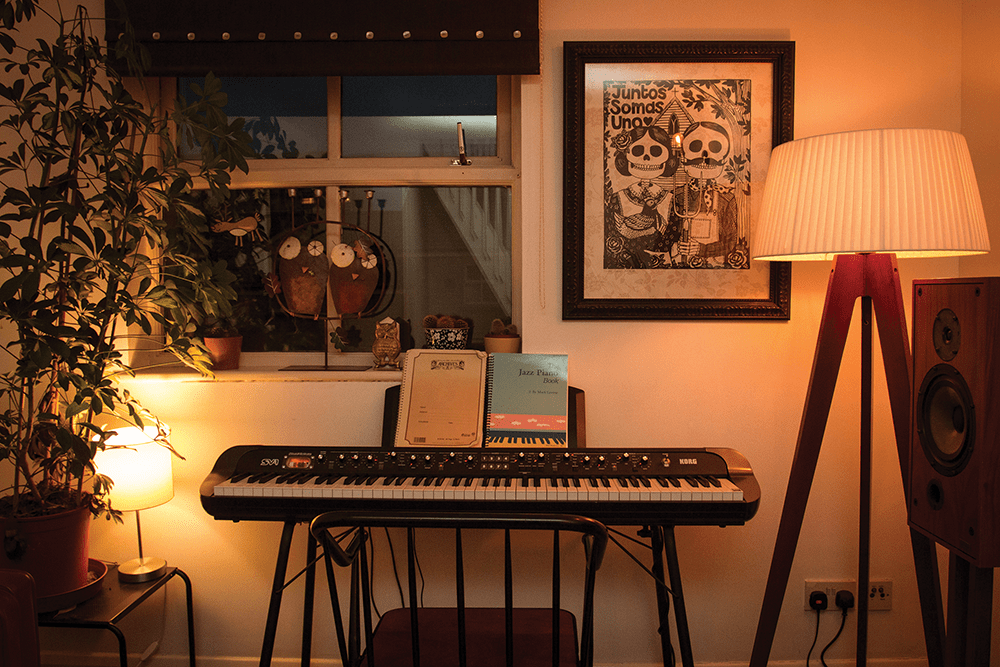
“Going places I’ve never heard” is a mantra Stefano repeats during his time as a lecturer. With the next generation of music makers having grown up with constant tutorials and access to how-tos, he feels the drive for experimentation is being lost. “When I’m lecturing and I speak to students, sometimes I’m a bit sad or a bit angry. They’ll play me some music they’re working on and it’ll sound big, it’ll have dimension, it’ll sound much better than my music did when I was their age. But as soon as I take off my headphones, they’ll open a folder and have music from Hot Since 82 or whoever their inspiration is and they’ve just copied it exactly.
“They ask: ‘Can you tell me how they made that siren?’ and I say: ‘This is maybe a Square wave synth…’ and they say: ‘No, I want to know exactly how they made it. Exactly the same’. Sometimes they even ask for a private session where I recreate a track for them, because they want their music to be exactly like Hot Since 82. I’m thinking: ‘This is terrible’.
“Imitation is nothing new in music, especially when learning your craft, but Stefano feels it goes beyond referencing, as he continues: “Trying to understand is very important – I do that. I listen to a DJ Koze record and I wonder what he’s used to create a certain sound or I’ll listen to a William Onyeabor record and wonder what type of Moog it is. That’s very much in our nature as producers. But I just have the feeling that a lot of younger producers are just ticking boxes. We live in an era where individuality is at zero.”
Disrupt to innovate
What’s the solution, then? If the answer to every musical or technical problem is at the end of a Google search, have we lost the happy accidents that come from trial and error?
“I do my best to encourage experimentation and show them weird stuff and even go to the extent of changing the curriculum just to show that there isn’t one way to do things and that by trying out new ways, you can end up in a new place.
“It’s important to disrupt, in the little things and the big things. I can’t take the liberty of disrupting within the industry – for example, when working in advertising, there’s a very clear idea and they give you lots of references, so you can’t really stray too far from that. But my little revolution is in speaking to students – and in my own music, experimenting at every opportunity.”
For Stefano, it’s clear that originality is key. It’s seen him rely almost entirely on a box from a boutique manufacturer to make his music, has morphed his DJ sets to resemble more “Young Marco than Solomun” and has led his new label to release “something new that’s not necessarily dance music – or if it is, it’s not at a fixed bpm”.
As we stand up to leave, Stefano goes back to flicking through old books, brainstorming with his designer friend over colours, concepts and aesthetics of his new label. Now free to follow his own sound, we�’re looking forward to what’s next from the Italian producer.